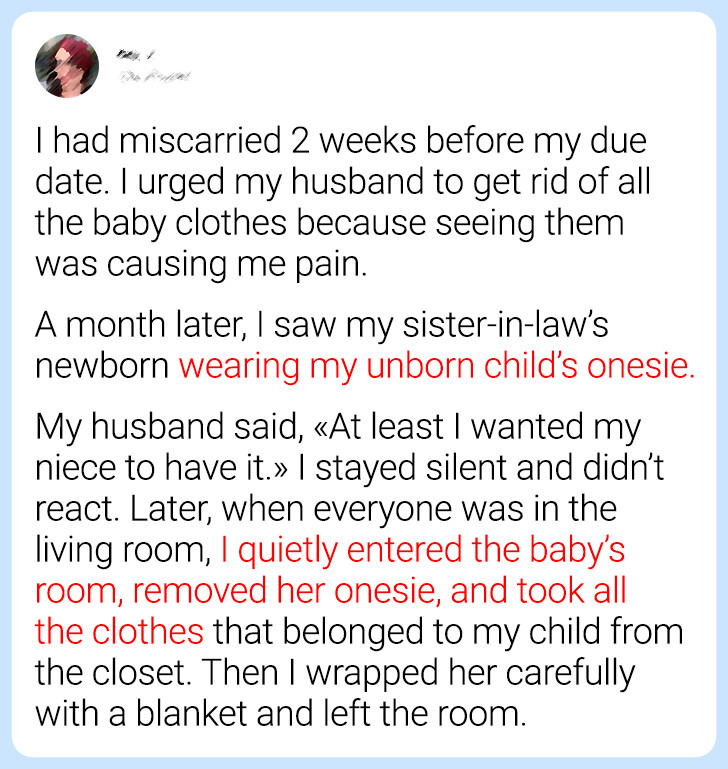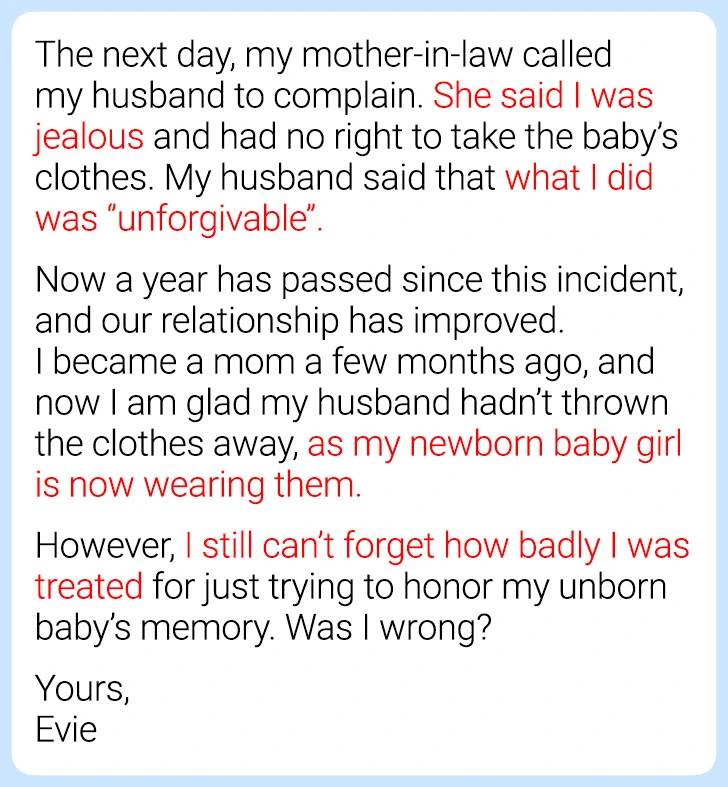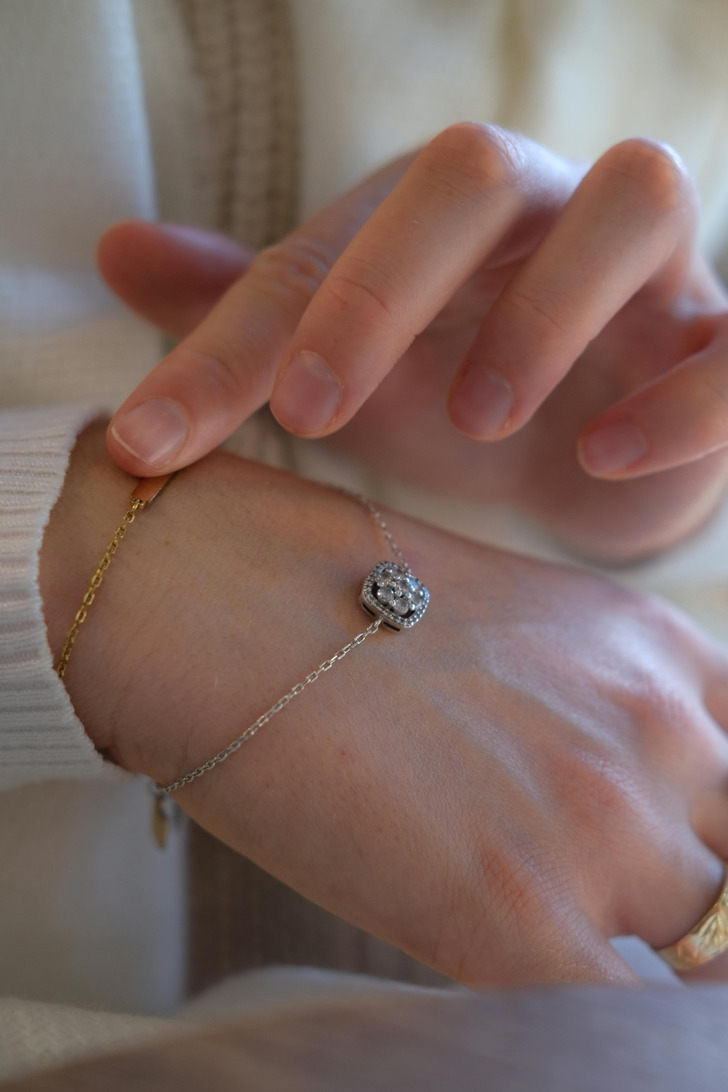Sometimes life presents challenges that can overwhelm us, and Evie found herself in one such moment. After her miscarriage, the young woman couldn't bear to see her stillborn baby's clothes, so she asked her husband to dispose of them. What unfolded next was unexpected, prompting Evie, in her grief, to take a surprising action. Although her journey ultimately concludes on a positive note, even a year later, Evie remembers the events vividly and has reached out to share her story with us.
This is Evie’s letter:



Thank you for your letter, Evie! Here are a few tips that we hope could help you navigate this situation.
Open and honest communication.

Arrange a calm and private conversation with your husband and mother-in-law. Explain your feelings and the pain you experienced after your miscarriage. Share how seeing your sister-in-law’s baby in your unborn child's clothes felt like a violation of your grief process.
Emphasize that reclaiming the clothes was your way of preserving a part of your stillborn child’s memory. This can help them understand your perspective and potentially lead to an apology or reconciliation.
Seek professional guidance.

Consider attending couples therapy or family counseling. A professional can help mediate the conversation between you, your husband, and your mother-in-law. They can provide a safe space for you to express your feelings and for your family to share their perspectives.
This can foster understanding and healing, allowing all parties to navigate this sensitive situation more effectively.
Create a memorial.

Establish a dedicated space or rituals to honor your stillborn child’s memory. This could be a small memorial garden, a special piece of jewelry, or an annual ritual on your due date. Inviting your husband to participate can help him understand the significance of this loss for you.
This alternative way of honoring your child might also help you feel less dependent on the physical items of clothing for remembrance.
Set boundaries.

Clearly communicate your boundaries regarding your stillborn child's belongings. Make it known that certain items hold deep emotional significance and are not to be used by others. You might also want to create new boundaries within the family to prevent similar issues in the future.
This can include discussing with your husband how to handle sensitive items or memories and ensuring mutual respect for each other's grieving processes.
Leah is another young woman who found herself in a delicate situation. Just six days before her wedding, a family tragedy struck, leading Leah's sister to urge her to cancel the wedding. However, Leah refused. What happened next was deeply moving and shocking.